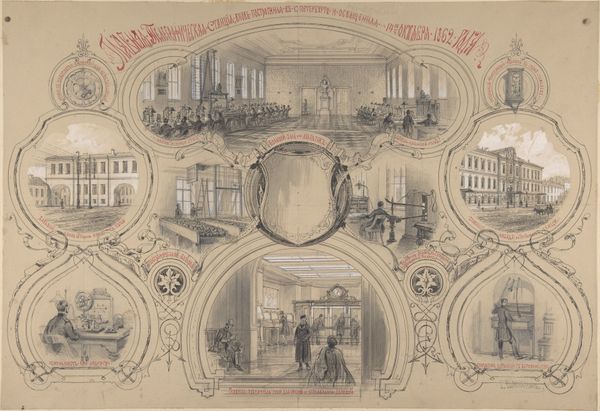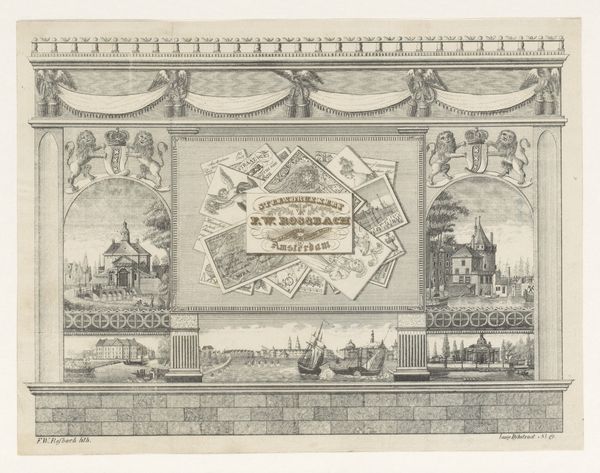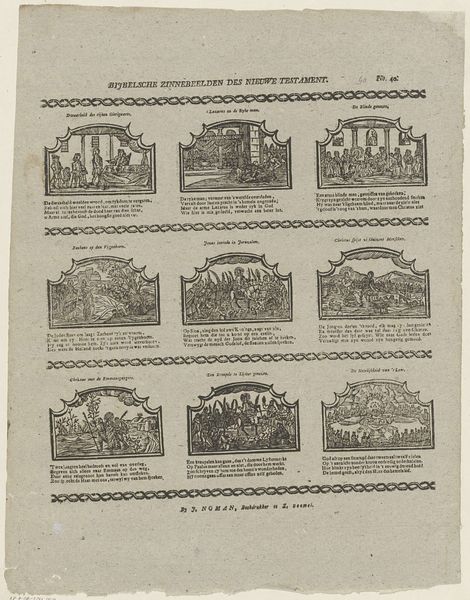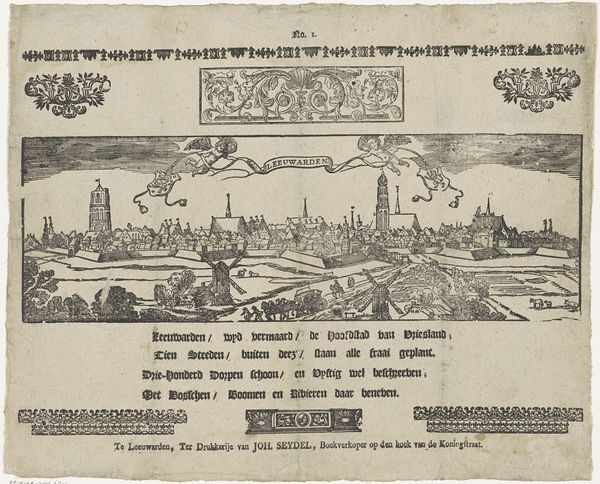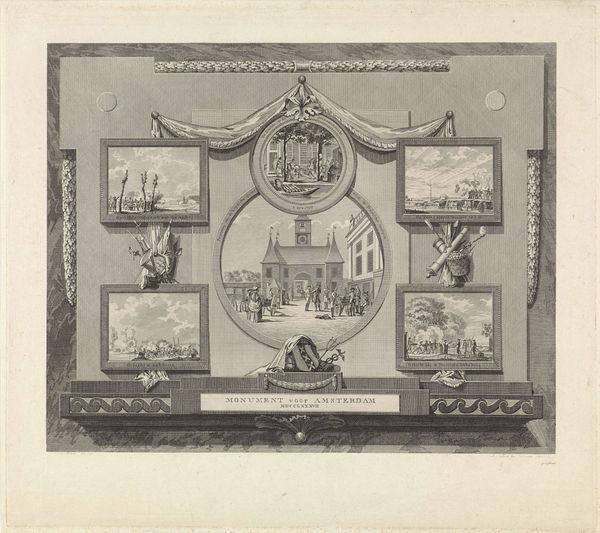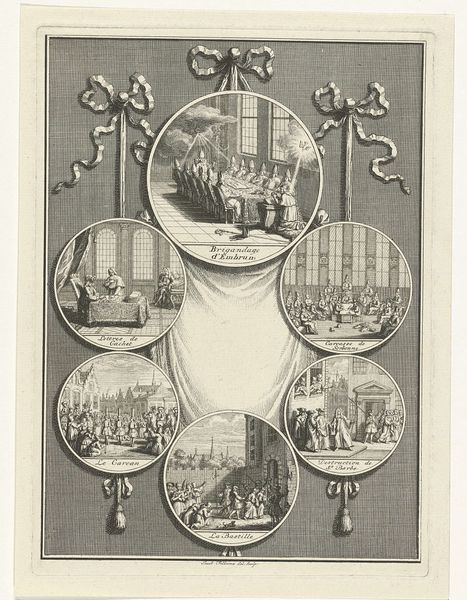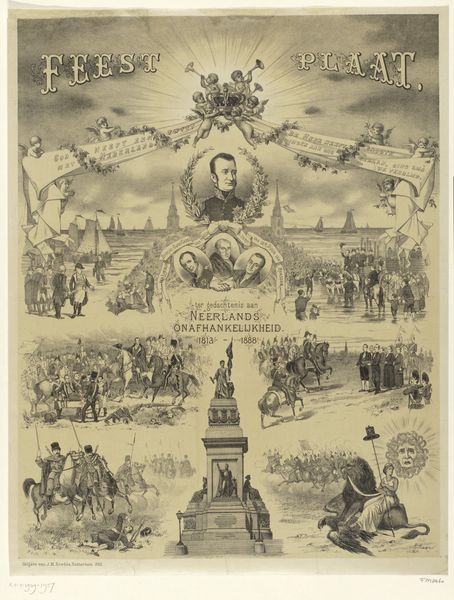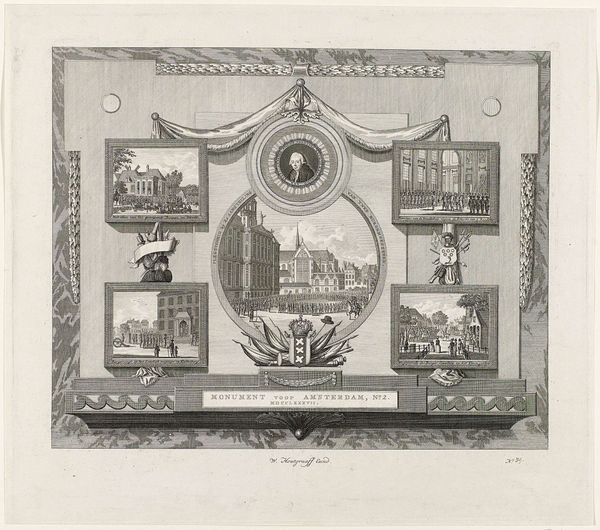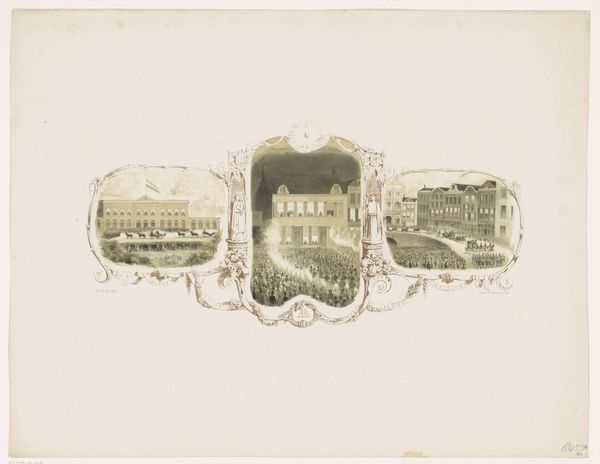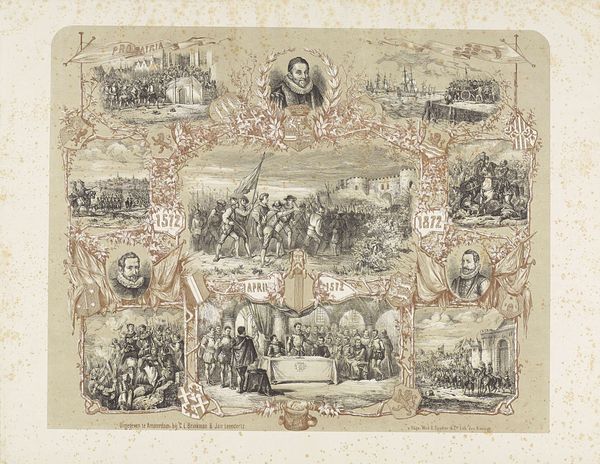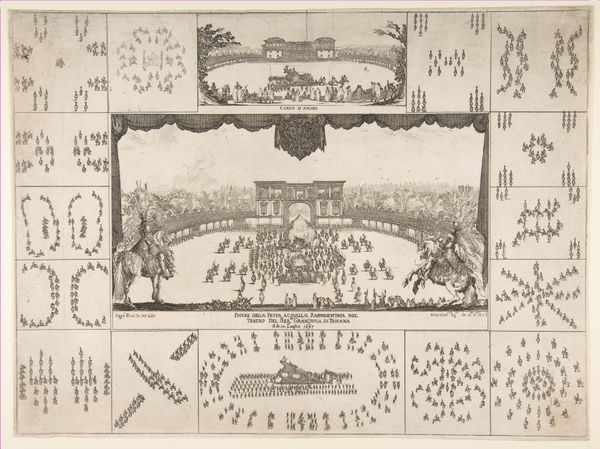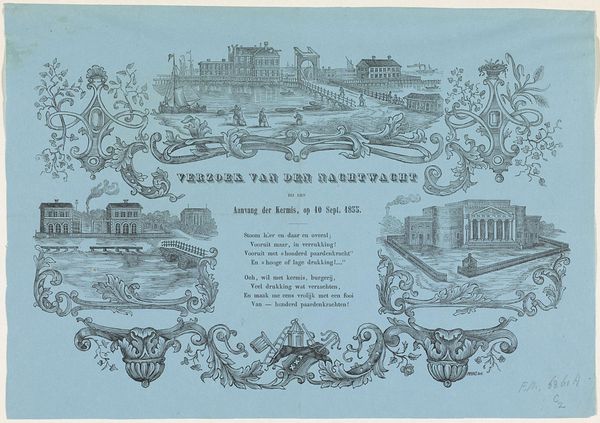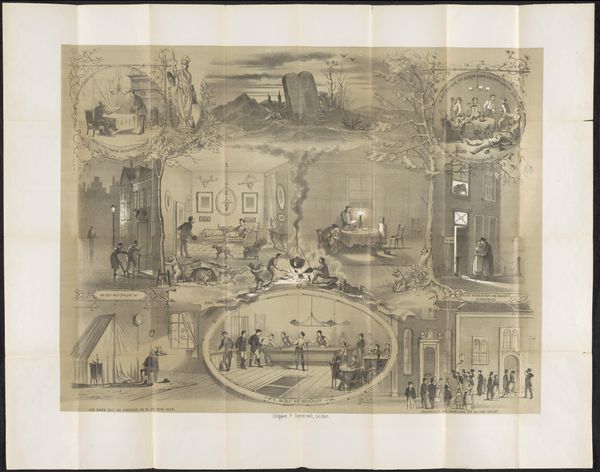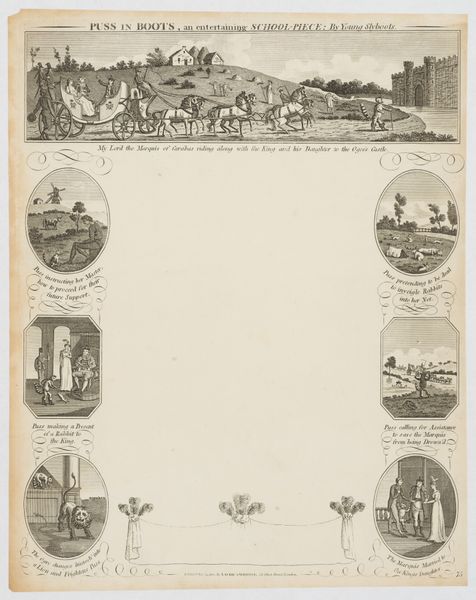
print, engraving
# print
#
old engraving style
#
19th century
#
cityscape
#
history-painting
#
engraving
Dimensions: height 487 mm, width 632 mm
Copyright: Rijks Museum: Open Domain
Editor: This engraving, titled "Afbranden van de Stoom-Suiker-Raffinaderij Lauriergracht Amsterdam, 1880" depicts the burning of a sugar refinery. It feels a bit strange – the detailed, almost celebratory border clashes with the destruction shown within the image. How do you interpret this work? Curator: The contrast is key, isn't it? This image isn't just about a fire; it’s about the social and economic context surrounding that event. Consider the frame, so meticulously rendered. What does its presence tell us about the intention of the print? Editor: Maybe that it was intended to commemorate the event? Curator: Precisely. But commemorate for whom? The inscription notes the print was produced “for the benefit of the 400 workers.” Look at the firemen in the center; the refinery aflame to the left and right of them. How does that imagery connect to 19th-century labor practices and class divisions? Editor: It seems to highlight the vulnerability of the working class. A single fire could devastate their livelihoods. Was there a strong labor movement in Amsterdam at this time? Curator: Absolutely. This print speaks directly to anxieties around industrial capitalism. It’s a disaster, yes, but also an opportunity to highlight the precarity faced by those who fueled the economic engine. Editor: So the framing isn't celebratory, but maybe more of a… fundraising appeal? Curator: Exactly. The aestheticization of disaster is used to tug at the heartstrings – and purse strings – of potential benefactors. The very act of memorializing becomes a form of activism. It underscores the power dynamics at play in the relationship between capital and labor. Editor: I never thought of it that way. I was focused on the depiction of the fire, but the purpose behind the print is just as important, maybe more so. Curator: It's a reminder that art always operates within a specific socio-political landscape, prompting a discourse.
Comments
No comments
Be the first to comment and join the conversation on the ultimate creative platform.
